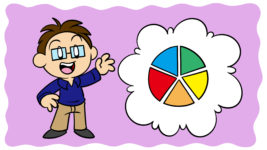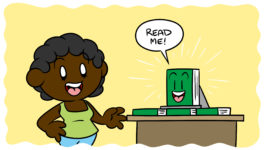Romeo and Juliet. Scarlett and Rhett. Allie and Noah. Elizabeth and Mr. Darcy. Ron and Hermione. Jane Eyre and Rochester. Just a handful of the many memorable couples in literature. I bet you could add a few of your favorites to this list. What do these couples have in common? What is it about their stories that captures readers’ imaginations across the years, decades, and even centuries? In short, what makes a great romance?
Sometimes, romance gets a bad rap for being fluffy, pure entertainment with little real-world insight, but Kelly Faircloth disagrees. In her insightful article ‘Here’s How Not to Critique Romance Novels’, she argues:
Romance is a real and valid literary tradition with its own tropes, conventions, goals and preoccupations that addresses real complexities in people’s lives… the genre’s true subject, and true great concern, is feelings. Not just romantic feelings, but feelings about one’s family, one’s friends, oneself.
This is the stuff that great romance novels are made of. The universal conflict of navigating these feelings resonates with us, no matter what century we live in. If you’re a romance writer, you already know the genre has value, but understanding that value, and how to bring it out, can still help take your writing from good to great.
Rule #1 – Triangles sell
Who doesn’t love a good love triangle? They make for delicious drama, and few among us have escaped the sting of unrequited love, adding a frisson of relatability. But what keeps such an oft-used trope from becoming stale?
Two words: high stakes.
Love triangles may be cliché, but readers adore them. Find a way to make it work.Click To TweetA spurned lover with mere hurt feelings will make a story fall flat, but give your characters something precious, something essential at stake, and you have a recipe for a page-turner.
Think of Scarlett O’Hara, pining helplessly for Ashley, whose devotion to Melanie is so pure and constant. All the while, Rhett is waiting in the wings with an equally passionate and loyal love for Scarlett, but she can’t see through the haze of her obsession. Readers feel the heroine’s situation growing more dire as, one by one, she loses every person or achievement she cared for. When she finally does realize her love for Rhett, of course it’s too late. He’s had enough. Scarlett has proven her mettle to readers time and again, but we can’t help wondering by the closing lines: how can she possibly come back from this?
The tension running through Gone with the Wind is tight as a drum, and it’s the stakes of Scarlett’s misplaced affections that keep readers hanging on every word. Are the stakes high enough in your story? What will happen if your protagonist doesn’t get the lover she longs for? If you keep your reader guessing right up to the end, your book is sure to stand out from the crowd.
Rule #2 – Readers love a happy ending
While Scarlett O’Hara’s brand of drama keeps readers locked in, we also can’t help swooning over a happy ending. In this scenario, the protagonist does get what she wants, and it’s all the more satisfying for the torturous wait we’ve endured on every page to get to this point.
Think of William Goldman’s The Princess Bride. The lovers, Buttercup and Westley, part after declaring their love and sharing a first passionate kiss. From that encounter, they’re separated by kidnappers, sword fights, R.O.U.S. (Rodents of Unusual Size), torture, and the scheming Prince Humperdinck. We wonder, Will these lovers ever overcome such obstacles? Spoiler alert: yes, they will. And when they do, it’s a happy ending of epic proportions.
Happy endings in fiction can give readers the strength to face real-world struggles.Click To TweetGoldman’s book is, of course, quite fantastical, but the spirit of the story holds true no matter the setting – great love faces many challenges, but it triumphs in the end. Every human encounters roadblocks to love and enduring happiness, and it’s one of the chief comforts of fiction to truly believe those struggles will be rewarded.
Rule #3 – Respect your audience (and your genre)
Another essential component to writing a great romance novel is having knowledge of and appreciation for the genre itself. Like every other genre, it has its own conventions, tropes, and nuances.
Not every romance novel is a bodice-ripper. Some do focus on the physical and prioritize entertaining the reader, but others have a more literary bent and use the genre’s focus on feelings to explore themes of human connection. If you read widely in the genre and familiarize yourself with its tools, you’ll be better prepared to place your book within it. You’ll know how to best reach your audience, how to maximize your story’s potential. If you’re not sure what the genre’s tropes or conventions or subgenres are, I have two resources to get you started:
- Mindy Klasky’s list of tropes,
- Now Novel’s list of subgenres.
Understand why fans are drawn to this genre and keep their expectations in mind as you write. Whether they’re just here for the sex or they relish the drama, dilemmas, and emotions, romance is the place for readers to explore an inner landscape often downplayed by society. In the pages of fiction, readers find themselves, they find a sympathetic ear, they find solidarity.
Readers approach romance fiction with a willingness to be moved. Rise to that challenge.Click To TweetYou and me could write a good romance
Romance novels’ capacity for plumbing the depths of human emotion, connection, and sexuality opens a world of possibilities for authors aspiring to try their hand at the genre. I hope these three golden rules of romance fiction will help you get started and stay true to yourself and your readers.
What insights can you share with fellow writers about trying your hand at romance novels? Which components of the genre do you find most essential? Let me know in the comments. Or, for more great advice on this subject, check out Writing Romance: Why Perfect Men Make Boring Heroes and Here’s How To Write A Killer Climax That Leaves Readers Breathless.






11 thoughts on “The 3 Golden Rules Of Writing An Amazing Romance”
Good point, a romantic triangle is tension and twists by definition., but can a romantic triangle be guaranteed to have a happy ending?
Is there a difference between a romance novel and a novel with romance?
Is romance about people only?
No, I dont think one can guarantee a happy ending for such a scenario… but thats part of the fun. Thats what makes the situation so tense: “how will this ever work out?!”
And there are high chances that it wont, but if You as the writer find a way to give your characters a good and happy ending. If you can resolve the love triangle, then youve accomplished a great and wondrous thing.
As for romance novels and romance in novels – the sky’s the limit! You can mix any genres your heart desires. Thats the magick of writing, and what ultimately makes your book Your Own.
After all, real life is more than just one genre all the way through. Life is romance, adventure, comedy and tragedy, etc.
Hi K.D.,
Well said. I agree!
Paige
Hi Jim,
I doubt a love triangle will have a happy ending for all involved, as someone is going to be the third wheel–unless he or she finds love elsewhere. And not every romance book needs a love triangle; I included it in the article because it’s such a common trope of the genre.
There is definitely a difference between a romance novel and a novel with romance. Romance novels will include tropes, conventions, and themes that set them clearly within the romance genre, while novels of all other genres can include a romantic element in the story.
I’m not sure what you mean by your last question. Can you explain?
Thanks for commenting!
Paige
A wonderful example of a happy romantic triangle is the film, “Jules and Jim” a French movie with subtitles. See https://en.wikipedia.org/wiki/Jules_and_Jim
The answer to my last question, “Is romance about people only?” seems to be no. There are ample examples in science and literature of romances between animals.
Well stated
I don’t understand the heading, “ You and me could write a good romance “. Is it a reference to something, a joke, or simply bad grammar. I can’t figureit out.
Hi Wendy,
The heading references the lyrics of Lady Gaga’s ‘Bad Romance’.
Best,
Rob
Excellent post – thank you. Although I don’t write in the romance genre, there are definitely elements of romance in my fiction, so the subject was of interest to me. I don’t personally feel that love triangles are inherently good or bad. Yes, they’re used a lot, but they can still work, if they’re done well. Strong characters are very much the key.
Hi Paula,
Thanks for your comment. I’m happy to hear you found the article an interesting read. I agree wholeheartedly–strong characters are key!
Paige
I believe not everyone can write a good romance fiction novel. I have recently started reading Patricia Hartmann’s books and wished I had found her sooner. Her books are so well written and mesmerizing. You can check out her collection at; https://pathartmannbooks.com/